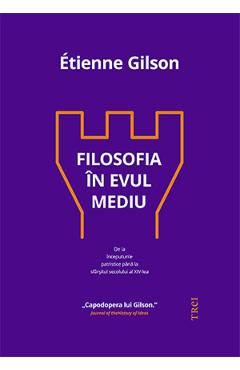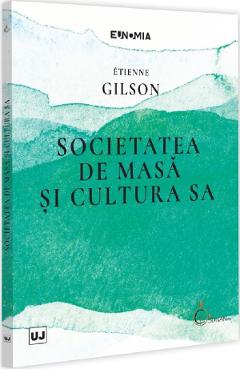Modern Philosophy - Etienne Gilson
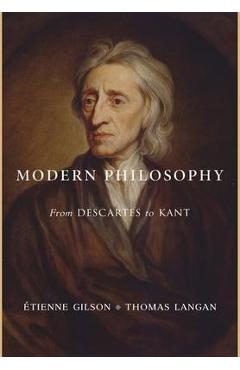
Detalii Modern Philosophy - Etienne Gilson
libris.ro
330.34 Lei
371.63 Lei
Philosophy
Etienne Gilson
Modern Philosophy - Etienne Gilson - Disponibil la libris.ro
Pe YEO găsești Modern Philosophy - Etienne Gilson de la Etienne Gilson, în categoria Philosophy.
Indiferent de nevoile tale, Modern Philosophy - Etienne Gilson din categoria Philosophy îți poate aduce un echilibru perfect între calitate și preț, cu avantaje practice și moderne.
Preț: 330.34 Lei
Caracteristicile produsului Modern Philosophy - Etienne Gilson
- Brand: Etienne Gilson
- Categoria: Philosophy
- Magazin: libris.ro
- Ultima actualizare: 25-10-2024 01:12:27
Comandă Modern Philosophy - Etienne Gilson Online, Simplu și Rapid
Prin intermediul platformei YEO, poți comanda Modern Philosophy - Etienne Gilson de la libris.ro rapid și în siguranță. Bucură-te de o experiență de cumpărături online optimizată și descoperă cele mai bune oferte actualizate constant.
Descriere magazin:
Per Étienne Gilson, philosophy is a collective enterprise in which no one can pretend to take part unless he is first properly introduced. To provide that proper introduction vis-à-vis the modern period, Gilson and Langan move systematically through the landmark figures and ideas of the seventeenth and the eighteenth centuries. Beginning with the vestiges of medievalism in Montaigne and Bacon, they then cover the interplay of science and philosophy (Descartes, Newton, and Vico); the emergence of a new political ethos (Hobbes, Locke, and Rousseau); the installation of the golden age of modern metaphysics (Spinoza, Leibniz, and Wolff); the juxtaposition of materialism with idealism (Newton, Berkeley, and Hume); the Christian reaction (Pascal and Gerdil); and the rise of Romanticism (Lessing, Herder and Kant). With its emphasis on the doctrinal content of each philosopher, braced by healthy portions of biographical detail, Modern Philosophy is a comprehensive treatment of what it has meant and what it means to philosophize, the ambitious breadth of which is matched only by its absorbing depth.

Produse asemănătoare

Philosophy. 50 Ideas in 500 Words - Paperback brosat - Jeremy Stangroom - Modern Books
![]() cartepedia.ro
cartepedia.ro
Actualizat in 02/07/2025
65 Lei

A Short History of Modern Philosophy: From Descartes to Wittgenstein, Paperback/Roger Scruton
![]() elefant.ro
elefant.ro
Actualizat in 02/07/2025
128.99 Lei

The Impact of Aristotelianism on Modern Philosophy, Paperback/Ricardo Pozzo
![]() elefant.ro
elefant.ro
Actualizat in 02/07/2025
198.99 Lei

Modern Iranian Philosophy. From Ibn Sina to Mulla Sadra Shirazi, Paperback/Iraj Bashiri
![]() elefant.ro
elefant.ro
Actualizat in 02/07/2025
889.99 Lei

The Prison before the Panopticon. Incarceration in Ancient and Modern Political Philosophy, Hardback/Jacob Abolafia
![]() elefant.ro
elefant.ro
Actualizat in 02/07/2025
344.99 Lei
Produse marca Etienne Gilson
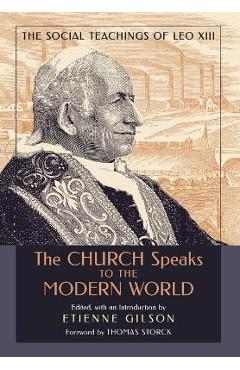
The Church Speaks to the Modern World: The Social Teachings of Leo XIII - Etienne Gilson
![]() libris.ro
libris.ro
Actualizat in 05/06/2025
245.15 Lei
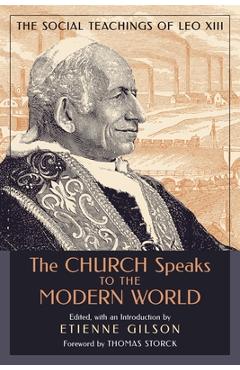
The Church Speaks to the Modern World: The Social Teachings of Leo XIII - Etienne Gilson
![]() libris.ro
libris.ro
Actualizat in 05/06/2025
185.62 Lei


